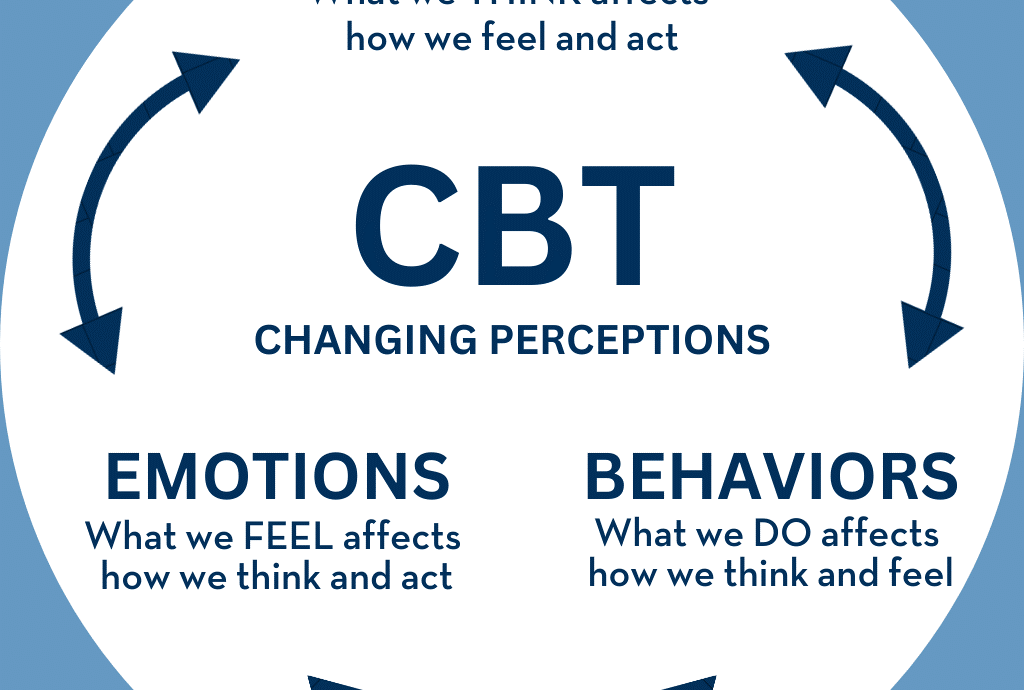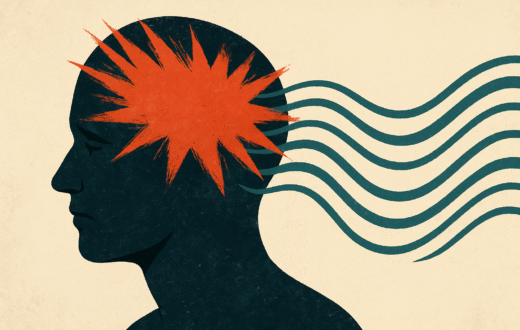Mental disorders and appropriate treatment techniques

Mental disorders are a common problem that affects the health of an individual’s existence and needs attention and effective treatment. This work aims to provide a comprehensive overview of mental disorders and their therapeutic techniques. The main classifications of mental disorders, psychological assessment, types of psychotherapeutic treatments, as well as mental disorders during life stages and integrated psychotherapy will be addressed. The impact of the social environment on psychotherapy will also be discussed, as well as future challenges and the role of ICTs in the development of psychotherapy.
The main classification of mental disorders includes a group of mental disorders that affect an individual’s psychological and behavioral health. These include anxiety, psychological, and psychological disorders. These disorders are classified based on their symptoms and effects on an individual’s life and on the psychiatric clinic.
Anxiety disorder refers to a group of mental disorders characterized by extreme anxiety and excessive stress. Excessive anxiety can lead to negative repercussions on an individual’s mental and physical health. Generalized anxiety, panic and social anxiety include anxiety disorders.
Mental disorders indicate a state of severe dissatisfaction with oneself and many negative thoughts about oneself. These disorders can include depression, lack of self-confidence and excessive psychological stress.
Psychiatric disorders include a group of disorders that affect an individual’s psychological state and that manifest individually. These disorders include identity disorder, psycho-intuitive disorder, mania, and personality disorders.
Psychological evaluation is one of the main steps in the diagnosis of mental disorders, as a person’s symptoms, behaviors and social interactions are evaluated. Psychological assessment involves gathering information through clinical interviews, observation, and the use of approved psychological tests. Psychological evaluation helps to understand the nature and severity of the mental disorder and influences the appropriate decision about appropriate treatment for the condition.
Clinical evaluation aims to assess the behavior, thoughts, and emotions of a person with a mental disorder. This is done through the person’s medical history and clinical interview with a specialist. Clinical evaluation also includes the evaluation of any physical symptoms that may accompany the psychological state to determine an accurate diagnosis and develop an effective treatment plan.
Psychological assessment tests are based on the use of approved tools and tests to assess an individual’s psychological factors. These tests include the use of tools such as personality and intelligence tests and standardized tests for psychological assessment. These tests help in understanding the intellectual and behavioral abilities of the individual and help diagnose mental disorders and determine the appropriate treatment accurately.
Psychotherapy involves the use of a range of approaches to help people overcome mental disorders. It can include pharmacological psychotherapy and cognitive behavioral psychotherapy as well as alternative psychotherapies. The methods used vary depending on the type of disorder and the needs of the individual. Psychotherapy aims to improve the mental health and general wellness of the patient through behavior change, negative thinking and providing the necessary psychological support.
Drug therapy involves the use of medications for the treatment of mental disorders. Medications used vary depending on the type of disorder, such as antidepressants, anti-anxiety and antipsychotics. The appropriate dosage and type of drug is assigned based on an assessment of the psychological state of the individual by a qualified psychologist. Drug therapy should be used under the supervision of a specialist doctor and as directed by him.
Cognitive behavioral psychotherapy is based on changing negative behavioral and thinking patterns that contribute to mental disorders. This type of therapy focuses on promoting awareness of thoughts, feelings and behaviors, and avoiding jumping to quick conclusions. Cognitive behavioral psychotherapy includes certain techniques such as goal focus, and positive thinking techniques to help individuals overcome mental disorders.
Alternative psychotherapies are important options for people looking for unconventional methods of treating mental disorders. These alternative therapies provide an opportunity to gain new skills and different experiences to improve mental health. By paying attention to the spiritual and mental side of the individual, alternative therapies can help manage psychological stress and promote psychological stability.
Yoga and meditation are alternative psychological therapies that focus on achieving balance and inner calm. Yoga relies on flexible physical movement and breathing variations to achieve relaxation and relieve mental tension. Meditation develops awareness and inner focus, enabling it to reduce anxiety and improve overall mental health.
Art therapy represents an innovative approach in the world of psychotherapy, where various arts such as painting, music and writing are used as a means of expressing emotions and feelings. By participating in art therapy, an individual can express themselves freely and discover their pent-up feelings, which helps them cope with psychological stress and improve internal communication.
Mental disorders during life stages are one of the most important aspects that must be focused on in the field of psychotherapy, as these disorders vary from one age stage to another. In childhood, children’s mental disorders include problems with behavior, mood, sleep and nutrition, and children with these disorders need ongoing follow-up and specialized treatment. In adolescence, adolescent psychiatric disorders can manifest as depression, anxiety, eating disorders or identity disorders, and their treatment requires a particular understanding of the hormonal changes and psychosocial factors that affect adolescents.
Children’s mental disorders are an important topic that must be carefully understood and addressed, as these disorders can include social communication difficulties, behavior disorders, anxiety and depression. Children with these disorders should be treated sensitively and specialized, especially when providing them with psychological support and appropriate treatment, especially because childhood is a vital period in the growth and development of personality.
Understanding and treating adolescent mental disorders is an important challenge for psychotherapists, as these disorders include problems with social adjustment, anxiety, depression and self-confidence disorders. Adolescents need a supportive environment and appropriate treatment that takes into account the challenges of this vital stage in a person’s life.
Common mental disorders are one of the most prevalent conditions in our society today, encompassing a variety of psychological conditions such as depression, anxiety, eating disorders, and addiction. These disorders pose a major challenge to the individual and to society as a whole, and need effective and appropriate treatment to overcome them and improve the patient’s quality of life. Therefore, it is essential to provide the necessary support and services for people with these disorders and to promote awareness of the importance of psychotherapy for full recovery.
Depression is a common psychiatric disorder that causes feelings of extreme sadness, loss of interest, and loss of enjoyment of daily activities. Depression can lead to problems with work and interpersonal relationships, and may increase the risk of suicide. Treatment depends on the degree of depression and associated symptoms, where medication and cognitive-behavioral psychotherapy can be included as an effective way to recover.
Anxiety is a psychological condition characterized by anxiety, excessive tension, and excessive anxiety. Severe anxiety can affect daily life and cause problems with sleep, concentration, and daily functioning. Anxiety can be treated through cognitive behavioral psychotherapy and drug therapy depending on the degree of anxiety and its impact on the individual’s life. It is important to seek appropriate help if symptoms of anxiety persist, as it is possible to provide the necessary support and resources to overcome this mental disorder.
Integrated psychotherapy is a holistic approach that combines several different therapeutic approaches such as cognitive behavioral therapy, psychodynamic therapy and drug therapy, with the aim of improving the psychological and emotional state of the individual. This approach is effective in dealing with a variety of mental and behavioral disorders and can allow an individual to experience better outcomes by combining several treatment approaches at the same time.
Cognitive Behavioral Therapy is a type of psychotherapy that focuses on changing negative thinking and unwanted behavior by analyzing the relationship between thoughts, feelings, and behavior. CBT aims to compensate individuals with positive thinking and behavior skills in dealing with psychological stress and behavioral problems, and many researches have shown the effectiveness of this approach in treating a variety of mental disorders such as depression, anxiety and stress.
The social environment plays a crucial role in the psychotherapy process, as it can significantly affect the patient’s progress. An encouraging and supportive environment can enhance the success of psychotherapy and contribute to improvement, while a negative and harsh environment can hinder the treatment process and negatively affect progress. Therefore, doctors and psychotherapists should take into account the patient’s social environment while providing treatment and providing appropriate support.
Social support is one of the main factors that contribute to the success of psychotherapy, as social support provides the necessary emotional and moral support to the patient during the treatment period. Forms of social support include individuals who provide emotional support, care for the patient, and practical assistance if necessary. Social support should be an essential part of the psychotherapy plan to achieve the best results and enhance patient stability.
One of the main challenges facing the field of psychotherapy is access to psychological services in remote and disadvantaged areas. In the future, many studies predict an increase in demand for psychological services as a result of the increased psychological stress faced by individuals in society. In addition, the field of psychotherapy should keep pace with developments in scientific research and modern technology to improve the quality of services provided.
Information and communication technology (ICT) is one of the modern tools used in providing teletherapy, which has become necessary, especially under exceptional circumstances such as the pandemic. Smartphone apps and online platforms can be used to provide therapy sessions and psychological support. It is important to leverage technological innovations to improve access to and effective delivery of psychological services.
In concluding this work, in which we reviewed mental disorders and appropriate treatment techniques, we find that the growing awareness of the importance of mental health and its impact on daily life makes it necessary to develop and expand access to psychological therapies. We also note the importance of providing social support and a supportive social environment in psychotherapy processes. It is also important to pay attention to future challenges such as the role of ICTs in enriching and developing psychotherapy. We hope that this work will be useful and inspiring to readers in this field.





